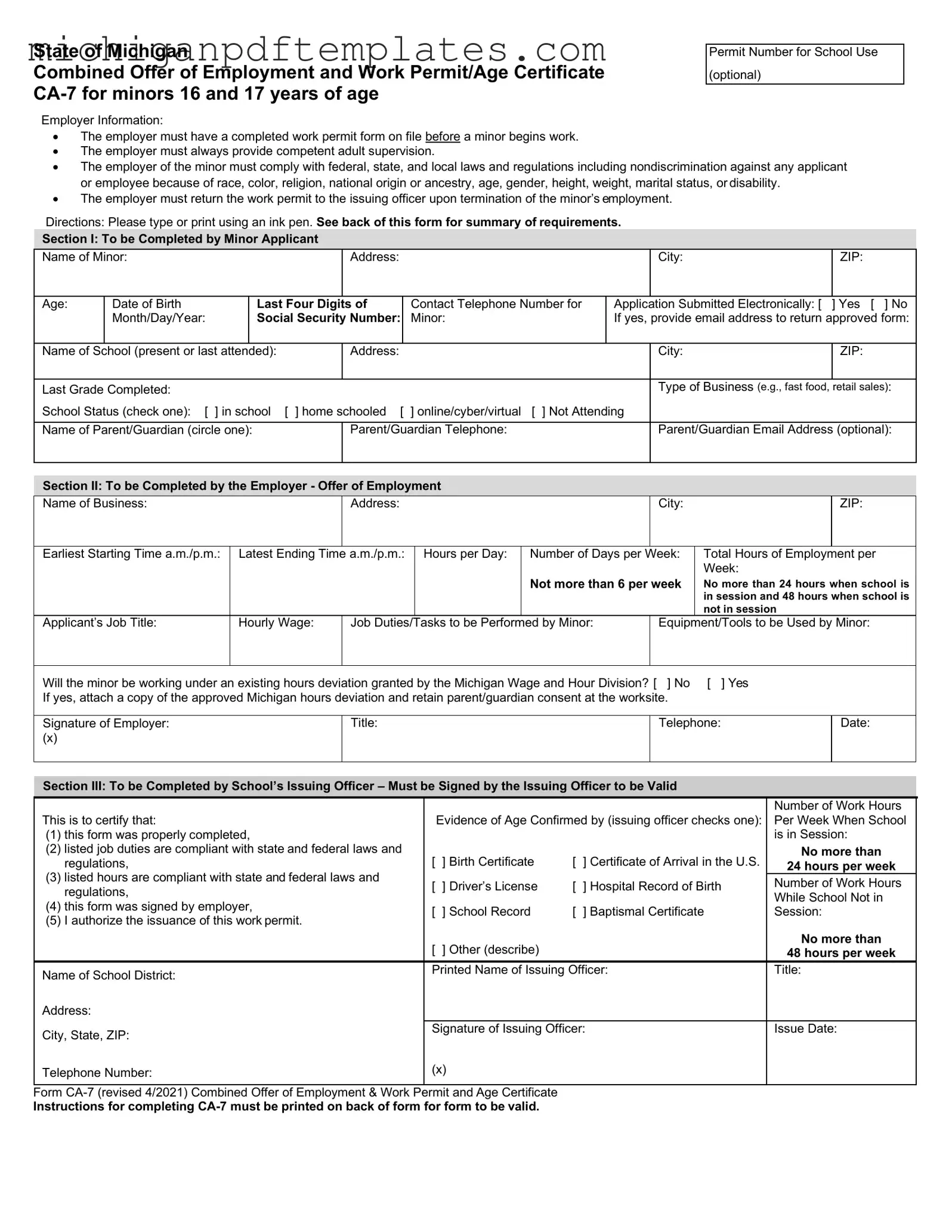Fill in Your Michigan Permit Form
The Michigan Permit form, officially known as the Combined Offer of Employment and Work Permit/Age Certificate CA-7, is required for minors aged 16 and 17 seeking employment. This form ensures that the employment complies with state and federal laws, providing necessary protections for young workers. To start the process, fill out the form by clicking the button below.
Get Your Form Now

Fill in Your Michigan Permit Form
Get Your Form Now

Get Your Form Now
or
▼ PDF Form
Finish this form quickly and move on
Fill in and complete Michigan Permit online quickly.